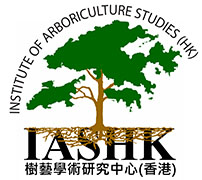rope made of natural fibers. Manila hemp.
Abacá (Spanish) (/ɑːbəˈkɑː/ ah-bə-KAH; Filipino: Abaka [ɐbɐˈka]), Musa textilis, is a species of banana endemic to the Philippines. The plant grows to 13–22 feet (4.0–6.7 m), and averages about 12 feet (3.7 m). The plant, also known as Manila hemp, has great economic importance, being harvested for its fiber, also called Manila hemp, extracted from the leaf-stems.
| Abacá Musa textilis | |
|---|---|

| |
| At the United States Botanic Garden | |
| Scientific classification | |
| Kingdom: | Plantae |
| Clade: | Tracheophytes |
| Clade: | Angiosperms |
| Clade: | Monocots |
| Clade: | Commelinids |
| Order: | Zingiberales |
| Family: | Musaceae |
| Genus: | Musa |
| Section: | Musa sect. Callimusa |
| Species: | M. textilis
|
| Binomial name | |
| Musa textilis | |
| Synonyms | |
The lustrous fiber is traditionally hand-loomed into various indigenous textiles (abaca cloth or medriñaque) in the Philippines. They still figure prominently as the traditional material of the barong tagalog, the national male attire of the Philippines, as well as in sheer lace-like fabrics called nipis used in various clothing components. Native abaca textiles also survive into the modern era among various ethnic groups, like the t'nalak of the T'boli people and the dagmay of the Bagobo people. Abaca is also used in traditional Philippine millinery, as well as for bags, shawls, and other decorative items. The hatmaking straw made from Manila hemp is called tagal or tagal straw.
The fiber is also exceptionally strong, stronger than hemp and naturally salt-resistant, making it ideal for making twines and ropes (especially for maritime shipping). It became a major trade commodity in the colonial era for this reason. The abaca industry declined sharply in the mid-20th century when abaca plantations were decimated by World War II and plant diseases, as well as the invention of nylon in the 1930s (which eventually replaced the use of abacá in maritime cordage[not verified in body]). Today, abaca is mostly used in a variety of specialized paper products including tea bags, filter paper and banknotes. Manila envelopes and Manila paper derive their name from this fiber.
Abaca is classified as a hard fiber, along with coir, henequin and sisal. Abaca is grown as a commercial crop in the Philippines, Ecuador, Costa Rica.
